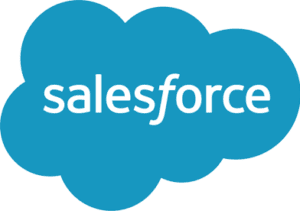
For organizations to succeed, they need to foster a healthy office culture for their employees. To get that healthy culture to take root, HR leaders have to do more than hang a poster of their employer’s stated values. They need to turn those values into action.
In other words, employees need to see their company put their money where their mouth is.
The 10 companies we’ve listed below have done just that. These organizations, all with different histories, locations, missions, and budgets, have found their own unique way to advance the kind of culture they want to see.
From birthday perks to four-day work weeks, most of these strategies aren’t expensive or hard to enact. Even small changes can help an office culture thrive.
1. Empower MediaMarketing: Coffee Chats

Empower MediaMarketing found a simple way to get employees from different teams to connect: they put their one and only coffee station on the first floor. Colleagues who would otherwise never get the chance to interact get to chat and catch up each morning. Ashley Walters, Empower’s senior vice president, has noticed the difference the single coffee spot has made.
“We savor our cop of Joe and talk with each other,” she said.
2. Markitors Website Development: Birthday Perks

Individuality means a lot to Brett Farmiloe, the founder and CEO of Markitors. It means so much to him that, when he founded the company, he didn’t just make it a company value. He decided to give all Markitors employees an extra paid day off on their birthday. This helps Markitors put their values into action and helps employees feel appreciated for their unique contributions.
3. Dataxu: Innovation Day

It’s easy to lose sight of your organization’s larger purpose when you’re just trying to get through your to-do list every day. To combat this effect, Dataxu has introduced Innovation Day.
During Innovation Day, which is really two days, all employees put down their usual work to come up with inventions that could help customers and better the company. On Day One, they brainstorm. On Day Two, they demo prototypes for a panel of judges. Finally, everyone votes for the best idea.
Dataxu has added more than 50% of the innovations to the company’s processes and software, according to Mike Baker, Dataxu’s CEO.
4. Salesforce: Generous Family-Leave Benefits

Salesforce does not mess around when it comes to their family-friendly culture.
Employees get to up to 26 paid weeks of parental leave for primary caregivers, moms or dads. Employees also have access to adoption benefits and even meal reimbursements.
Salesforce also supports the working parent on the go. Moms traveling for work get a membership to Milk Stork, a breast-milk shipping service. This perk makes getting back to work a much easier transition for new moms.
5. PHOS Creative: Culture Handbook

It may not make the national bestseller list any time soon, but a clear-cut, well-planned handbook sets the foundation for a healthy office culture.
PHOS Creative took it a step further when they added a 29-page culture handbook to go with the regular employee handbook. This handbook details PHOS Creative’s core values and how those values influence the way employees should work on a daily basis. Team members receive the handbook on their first day, and to keep it relevant, leaders update it regularly.
6. Postcard Mania: Kid Zones for Storm Season

Lots of companies talk a big game about being family friendly, but PostcardMania walks the walk.
The marketing company is headquartered in Florida, where local schools can close on a moment’s notice during hurricane season. These sudden closures can put families in quite a lurch. So PostcardMania keeps babysitters on staff in case of school shutdowns on storm days.
The babysitters turn the common areas and first floor into kid-friendly zones with projectors for cartoons, healthy snacks from the café, and more. Kids can play in a safe, supervised, and fun environment. Working parents don’t have to use their PTO to take care of their kids or scramble to find child care.
7. Badger Maps: Office Hobbies

The breakroom foosball table has become a stereotype of Millennial workplaces, but at Badger Maps, it’s a crucial part of the office. Countless colleagues have gotten to know one another over a friendly foosball game.
As minor as a foosball table may seem, it’s part of how Badger Maps has developed an inclusive culture. As the company’s founder and CEO said, “What is special about foosball is that it’s a very inclusive activity, cutting across gender, culture, and natural physical ability so that everyone can have fun playing.”
8. Treehouse: Four-Day Work Week

All 87 of Treehouse’s full-time employees receive the same perk: a 32-hour work week.
Ryan Carson, Treehouse’s CEO, felt exhausted and drained from the brutal hours he had to keep when working for a startup. When he founded Treehouse, he decided to spare his employees all that misery by giving them shorter work weeks. The four-day week gives team members more time with their families and more energy to think of creative strategies and solutions.
Treehouse CFO Michael Watson agrees with Carson’s strategy.
“I think that when people aren’t overworked, the chance for that light bulb to go off, that epiphany moment, whatever you want to call it, is increased,” Watson told the Atlantic.
9. Warby Parker: Reoccurring Get-Togethers, Programs, and Meals
![]()
Warby Parker has four ground rules. Number Two: Create an environment where employees can think big, have fun, and do good. In order to follow this rule, the trendy eyeglass manufacturer and seller created an entire team dedicated to office culture.
One way the team maintains a joyful, thoughtful workforce is by keeping the event calendar full of upcoming celebrations. This way, employees always have something to look forward to attending. Continuing events also help the team build a sense of kinship between colleagues, which sets the foundation of a great culture.
10. SOLitude Lake Management: Rewards for Volunteers

SOLitude Lake Management develops programs to keep water healthy and clean in a sustainable way, so it makes sense that they want to reward employees for volunteering and giving back to the earth. The company fosters this sense of service with their community outreach program called The SOLution. The program recognizes volunteers each quarter and rewards them with prizes, gift cards, and company-matched contributions to charities of their choice.
Ann Marie Dori, SOLitude’s marketing and outreach coordinator, noted the program is “a unique aspect of our culture that encourages teamwork and leadership but also kindness and compassion.”
From organizations with a staff of 87 to businesses with offices in almost every continent on earth, all companies have options when it comes to creating the culture they want. Even shared office hobbies and shorter work weeks can bring employees together and establish a company’s value. It doesn’t have to cost a lot to create the culture you want to see.

 What challenges do you face with your work culture?
What challenges do you face with your work culture?